
Masvingo: The Historical Heartbeat of Zimbabwe
Masvingo, often regarded as the historical heartbeat of Zimbabwe, is a treasure trove for history enthusiasts and nature lovers alike. The city is home to the Great Zimbabwe Ruins, a UNESCO World Heritage site which stands as a testament to the rich cultural heritage of the Shona civilization. These ancient stone structures, dating back to the 11th century, provide a fascinating glimpse into the architectural prowess and societal organization of the time. Wandering through the ruins, you can almost hear the whispers of history echoing through the walls. Masvingo is not just about ancient history; it is also a gateway to some of Zimbabwe's most stunning landscapes. Lake Mutirikwi, formerly known as Lake Kyle, offers a serene escape with opportunities for boating, fishing, and picnicking. The adjacent Kyle Recreational Park is teeming with wildlife, including giraffes, zebras, and various bird species, making it a perfect spot for nature walks and game viewing. The city's vibrant local culture and welcoming atmosphere are sure to leave a lasting impression. Explore the bustling markets where you can find handmade crafts, traditional fabrics, and fresh produce. Engage with the locals and immerse yourself in their stories and traditions. Masvingo's blend of historical significance, natural beauty, and cultural vibrancy makes it a must-visit destination for any traveler looking to experience the essence of Zimbabwe.
Local tips in Masvingo
- Visit the Great Zimbabwe Ruins early in the morning to avoid crowds and capture the best photos.
- Hire a local guide to fully appreciate the history and significance of the Great Zimbabwe Ruins.
- Pack a picnic and enjoy a day at Lake Mutirikwi, where you can relax and take in the scenic views.
- Wear comfortable walking shoes, as some of the best sights in Masvingo involve exploring on foot.
- Don't miss the local markets for unique souvenirs and an authentic taste of Masvingo's culture.
Masvingo: The Historical Heartbeat of Zimbabwe
Masvingo, often regarded as the historical heartbeat of Zimbabwe, is a treasure trove for history enthusiasts and nature lovers alike. The city is home to the Great Zimbabwe Ruins, a UNESCO World Heritage site which stands as a testament to the rich cultural heritage of the Shona civilization. These ancient stone structures, dating back to the 11th century, provide a fascinating glimpse into the architectural prowess and societal organization of the time. Wandering through the ruins, you can almost hear the whispers of history echoing through the walls. Masvingo is not just about ancient history; it is also a gateway to some of Zimbabwe's most stunning landscapes. Lake Mutirikwi, formerly known as Lake Kyle, offers a serene escape with opportunities for boating, fishing, and picnicking. The adjacent Kyle Recreational Park is teeming with wildlife, including giraffes, zebras, and various bird species, making it a perfect spot for nature walks and game viewing. The city's vibrant local culture and welcoming atmosphere are sure to leave a lasting impression. Explore the bustling markets where you can find handmade crafts, traditional fabrics, and fresh produce. Engage with the locals and immerse yourself in their stories and traditions. Masvingo's blend of historical significance, natural beauty, and cultural vibrancy makes it a must-visit destination for any traveler looking to experience the essence of Zimbabwe.
When is the best time to go to Masvingo?
Iconic landmarks you can’t miss
Temshel Sportswear and Fragrances
Explore Temshel Sportswear and Fragrances in Masvingo for a unique shopping experience featuring local and international perfumes and stylish sportswear.

Regency Flamboyant Hotel
Discover comfort and convenience at Regency Flamboyant Hotel, your gateway to the historic treasures of Masvingo, Zimbabwe.

Great Zimbabwe National Monument
Explore the majestic ruins of Great Zimbabwe National Monument, a UNESCO World Heritage Site showcasing the grandeur of ancient Shona civilization.
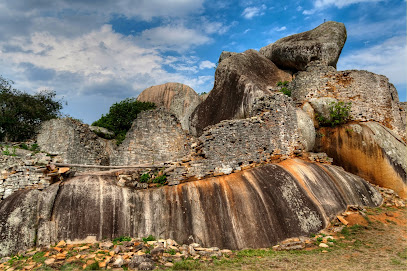
Great Zimbabwe Hotel
Experience the perfect blend of luxury and culture at the Great Zimbabwe Hotel, your gateway to the ancient wonders of Zimbabwe.

Chevron Hotel
Discover the comfort and convenience of Chevron Hotel in Masvingo, your ideal base for exploring Zimbabwe's rich history and culture.

Lodge At Ancient City
Discover the serene beauty and rich history at Lodge At Ancient City in Masvingo, your gateway to the Great Zimbabwe ruins.

Masvingo Downtown Lodge
Discover the charm of Masvingo at Masvingo Downtown Lodge, your gateway to historical landmarks and local culture in Zimbabwe.

Palmview Guest Lodge
Discover the perfect blend of comfort and adventure at Palmview Guest Lodge in Masvingo, Zimbabwe, your ideal base for exploring the rich culture and history of the region.
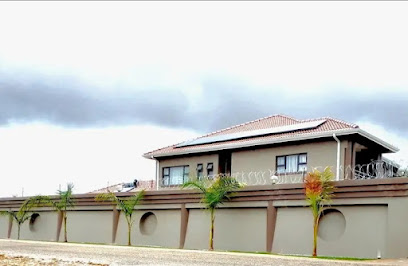
Khami Ruins
Discover the ancient Khami Ruins, a UNESCO World Heritage site, where history and culture come alive amidst stunning landscapes.
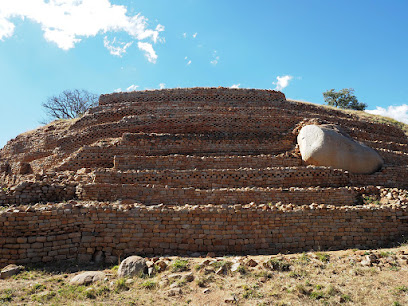
Urban Lifestyles Guest House
Experience comfort and local charm at Urban Lifestyles Guest House, your gateway to exploring Masvingo's rich history and vibrant culture.
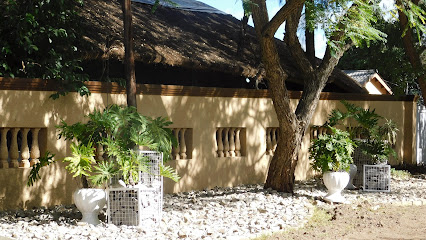
Lake Mutirikwi
Explore the natural beauty of Lake Mutirikwi, a tranquil escape in Zimbabwe perfect for fishing, hiking, and serene relaxation amidst stunning landscapes.
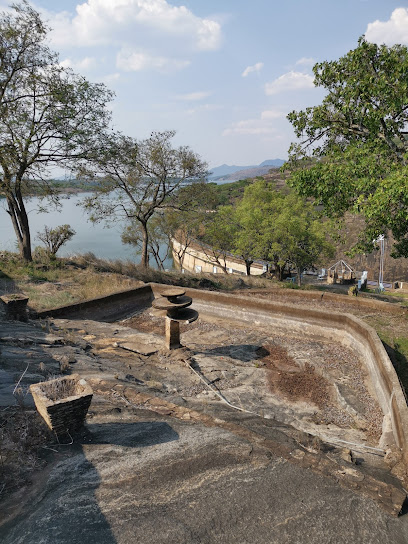
Heavenly Harmony Guest House
Discover tranquility and comfort at Heavenly Harmony Guest House in Masvingo, the perfect retreat for travelers seeking relaxation and adventure.
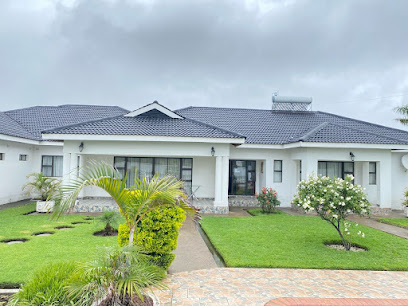
Flamboyant Hotel
Flamboyant Hotel in Masvingo offers comfort, hospitality, and a perfect base for exploring Zimbabwe's rich history and stunning landscapes.
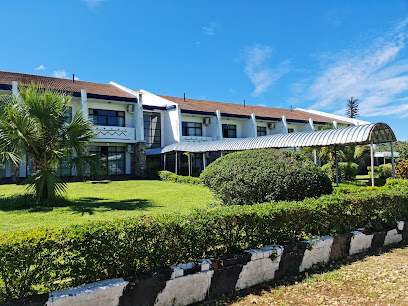
Great Zimbabwe University
Discover the rich academic and cultural heritage at Great Zimbabwe University, a gateway to understanding Zimbabwe's past and present.
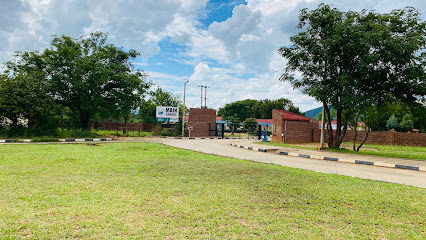
Mutirikwi Lake Shore Lodges
Discover the serene beauty of Mutirikwi Lake Shore Lodges, a perfect retreat for relaxation and adventure in Zimbabwe's stunning landscapes.
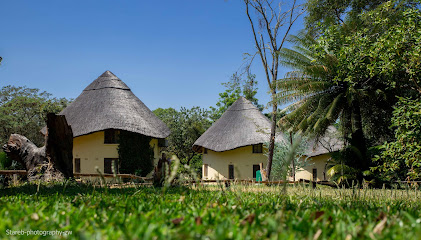
Unmissable attractions to see
Great Zimbabwe National Monument
Explore the Great Zimbabwe National Monument, a UNESCO World Heritage Site showcasing the grandeur of ancient African civilization and its architectural marvels.
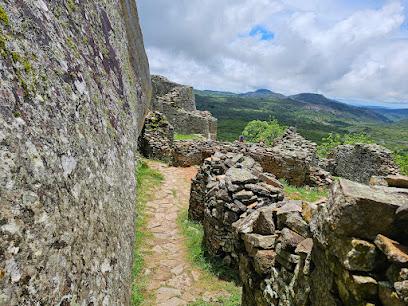
Kyle Dam Wall
Explore the stunning Kyle Dam Wall at Lake Mutirikwi, a remarkable blend of engineering and natural beauty perfect for outdoor enthusiasts and history lovers alike.
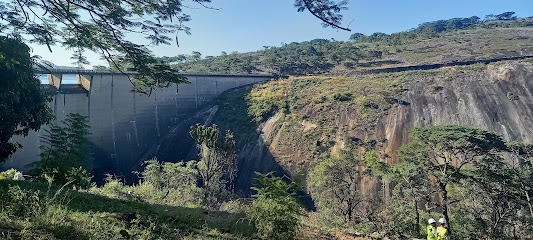
Mushandike
Discover the serene beauty and diverse wildlife of Mushandike National Park in Zimbabwe, a hidden gem perfect for nature lovers and adventurers.
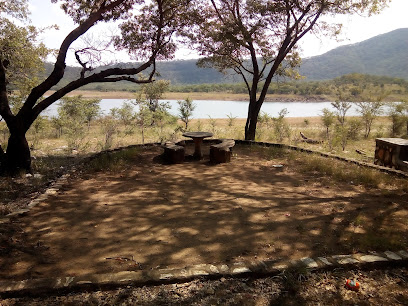
Lake Mutirikwi Recreational Park
Discover the tranquil beauty and rich biodiversity of Lake Mutirikwi Recreational Park, a serene national park in Zimbabwe perfect for nature lovers.
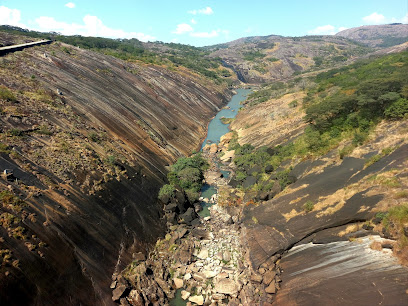
Boterekwa
Explore Boterekwa in Masvingo, a stunning tourist attraction showcasing Zimbabwe's natural beauty and cultural richness.
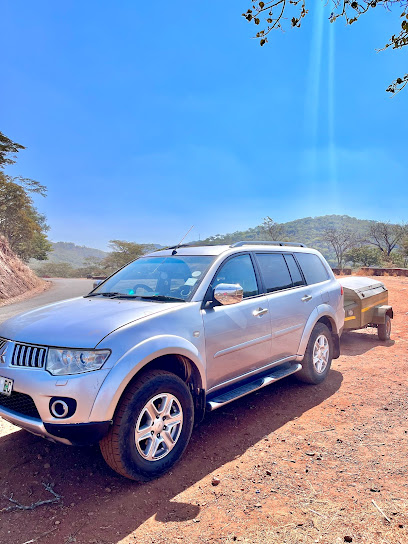
Kyle View Chalets
Experience the tranquil beauty of Masvingo at Kyle View Chalets, your perfect escape into nature, comfort, and adventure.
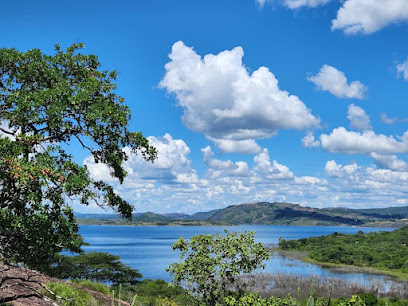
Sikato Lion Park
Explore the captivating Sikato Lion Park in Zimbabwe, a sanctuary for majestic lions and diverse wildlife, ideal for nature lovers and families.
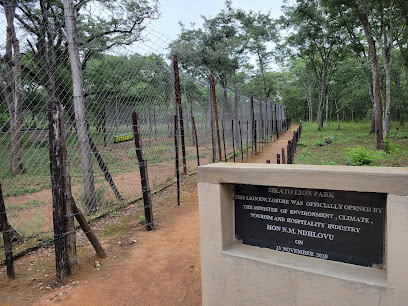
House
Uncover the historical significance and architectural beauty of Masvingo's House, a key attraction in Zimbabwe's rich cultural landscape.

Central Valley Ruins
Explore the Central Valley Ruins in Zimbabwe, where ancient history meets stunning landscapes in a captivating journey through time.

Monga Mountain
Explore the breathtaking landscapes and adventure trails of Monga Mountain, a natural gem in Zimbabwe perfect for every nature enthusiast.

Bloxx Expedition
Discover the serene beauty of Bloxx Expedition Garden, a tranquil escape filled with vibrant flora and peaceful pathways, perfect for nature lovers and relaxation.
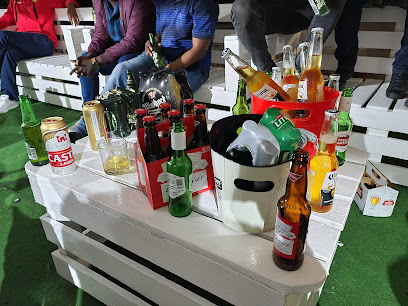
Sundowners
Discover Sundowners, a tranquil garden retreat in Masvingo, showcasing nature's beauty and offering a serene escape for tourists.

Copota Shakashe Dam Wall
Experience the tranquil beauty of Copota Shakashe Dam Wall, a hidden treasure in Masvingo, Zimbabwe, perfect for nature lovers and adventure seekers.

GOSHEN RANCH ZIMBABWE
Discover the tranquility and natural beauty of Goshen Ranch, a serene park in Masvingo, Zimbabwe, perfect for relaxation and outdoor adventures.

Pamawiro (Chivaka and Shange Rivers)
Discover the serene beauty of Pamawiro, where the Chivaka and Shange Rivers meet nature's tranquility in Masvingo, Zimbabwe.

Essential places to dine
Steers
Discover the best burgers at Steers in Masvingo - where quality meets flavor in every bite!
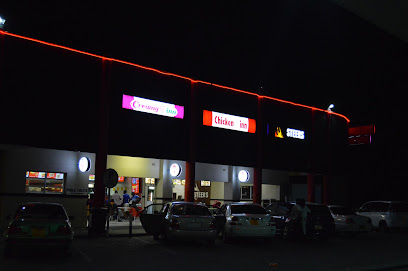
Chicken Slice.
Discover delicious chicken dishes at Chicken Slice in Masvingo - where flavor meets local charm.
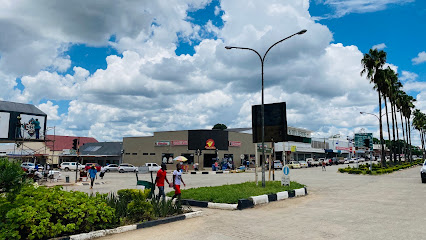
Palmview Guest Lodge
Discover tranquility and comfort at Palmview Guest Lodge in Masvingo - your home away from home in Zimbabwe.
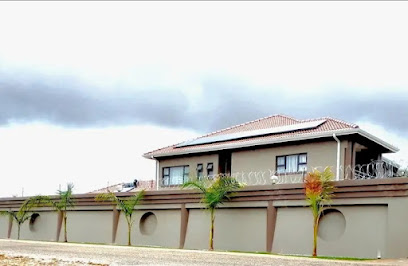
Pizza Inn Masvingo CBD
Experience delightful pizza creations at Pizza Inn Masvingo CBD - where taste meets convenience in the heart of Zimbabwe.
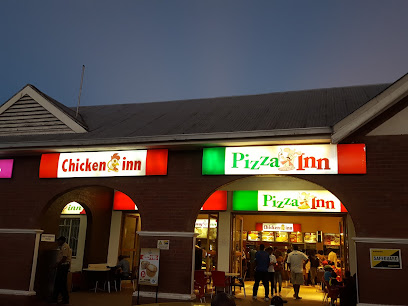
Moira Jane's Blue Bird Cafe
Discover Moira Jane's Blue Bird Cafe: A cozy dining spot in Masvingo offering delicious local cuisine and warm hospitality for every traveler.
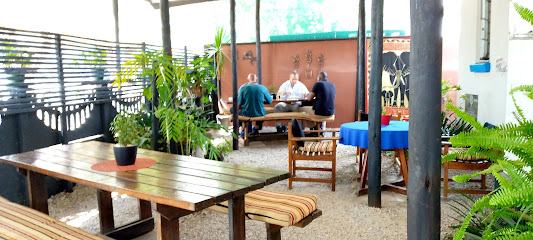
Reflections Restaurant
Discover Reflections Restaurant in Masvingo for exceptional dining with local flavors and global cuisine amidst a vibrant atmosphere.
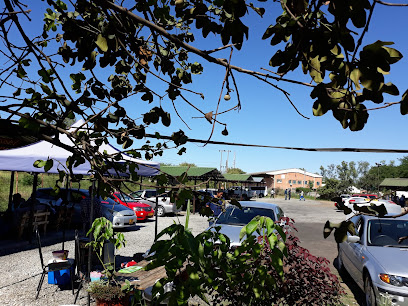
DB Stopover SPAR
Experience the heart of Masvingo at DB Stopover SPAR – your go-to supermarket with delicious barbecue options.
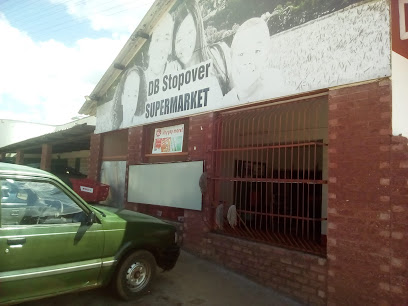
Ujiji Bar
Experience the vibrant flavors of Ujiji Bar in Masvingo - where local cuisine meets lively atmosphere.

Chicken Inn Masvingo Stores
Savor delicious fried chicken and fast food favorites at Chicken Inn Masvingo – a tasty stop for travelers exploring Zimbabwe.
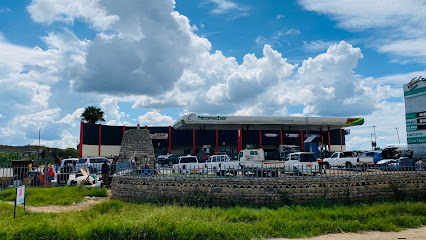
Chicken Shack
Discover delicious fast food at Chicken Shack in Masvingo - where crispy chicken meets local flavor in a vibrant setting.
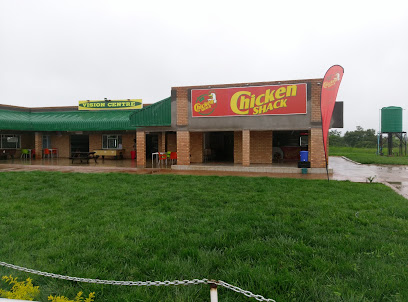
Masvingo Food Court
Discover diverse culinary delights at Masvingo Food Court – where local flavors meet global tastes in a vibrant atmosphere.
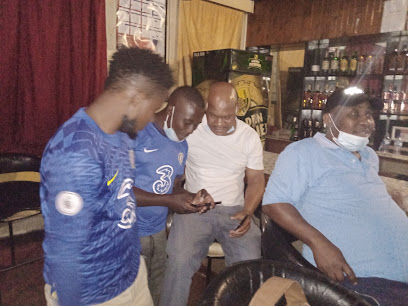
Chicken Inn Masvingo Exor
Indulge in mouthwatering fried chicken at Chicken Inn Masvingo Exor – where flavor meets convenience.

KFC Masvingo Puma
Discover fast food delights at KFC Masvingo Puma - your go-to spot for tasty fried chicken and more in vibrant Masvingo.
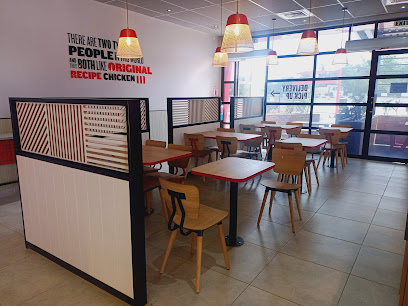
Chicken Inn Masvingo CBD
Experience delicious fried chicken at Chicken Inn in Masvingo CBD - a top choice for quick bites and satisfying meals.
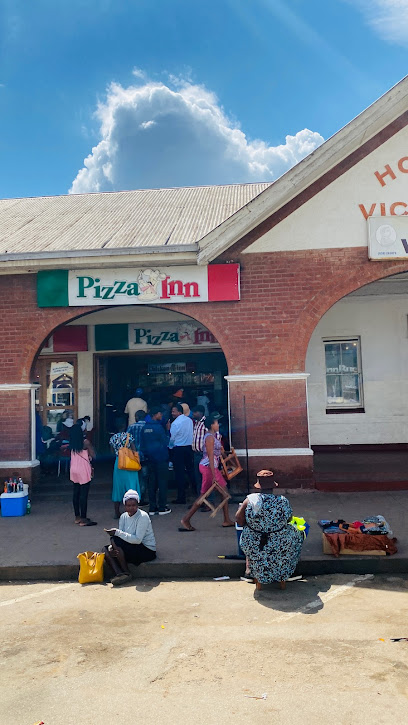
The Ivory Café
Experience the best of Masvingo's culinary scene at The Ivory Café—where local flavors meet cozy ambiance.
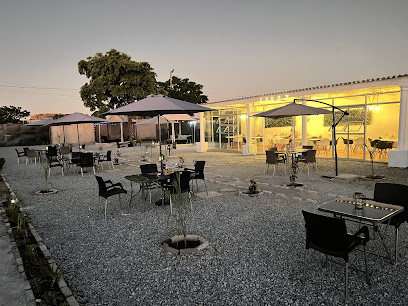
Markets, malls and hidden boutiques
Temshel Sportswear and Fragrances
Discover quality perfumes and stylish sportswear at Temshel Sportswear and Fragrances in Masvingo, where shopping meets local culture.

OK Masvingo Supermarket
Explore the bustling OK Masvingo Supermarket for a unique shopping experience, offering local products and essentials in the heart of Masvingo.
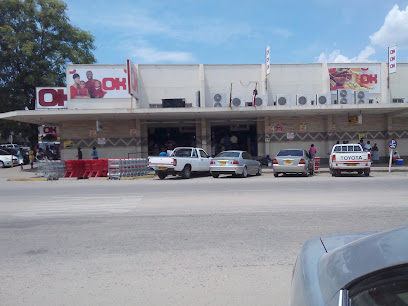
Ok Mart
Explore Ok Mart in Masvingo for a vibrant shopping experience filled with local and international products, perfect for tourists and locals alike.
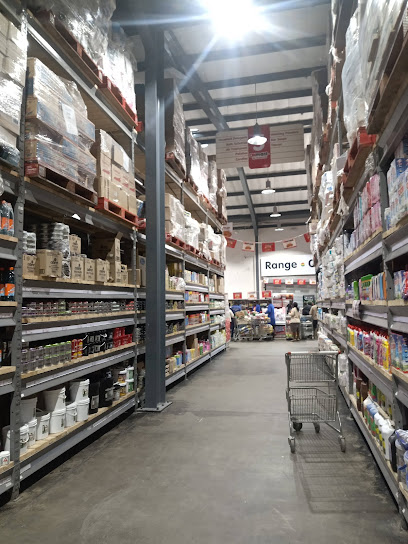
Nyaningwe Supermarket.
Explore Nyaningwe Supermarket for local produce, fresh bakery items, and an authentic shopping experience in Masvingo.
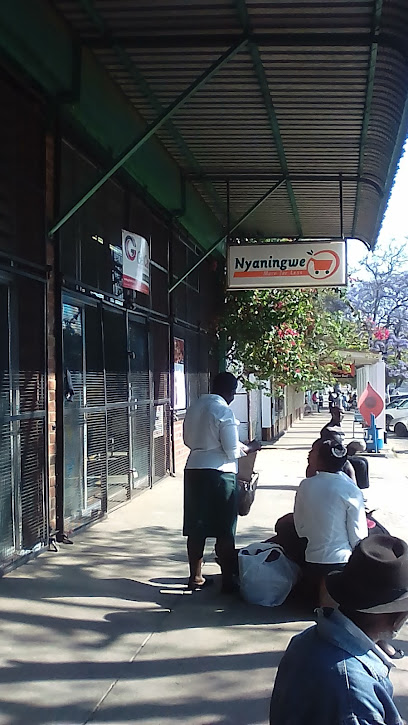
Edgars Stores
Explore Edgars Stores in Masvingo for a unique shopping experience featuring a wide selection of trendy clothing and accessories for all ages.
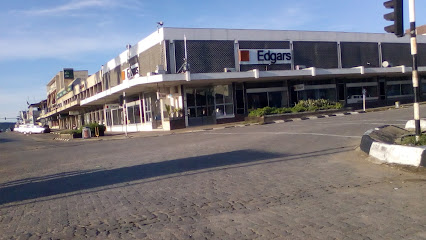
Kumboedza mall
Explore Kumboedza Mall: A lively shopping hub in Masvingo, offering a unique blend of local culture, shopping, and dining experiences.
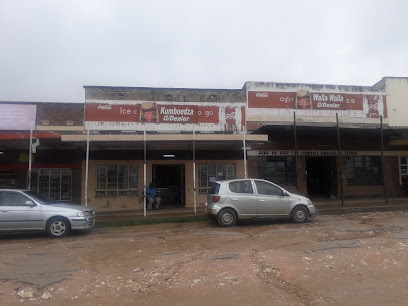
First Pack Masvingo
Discover a wide range of quality stationery products at First Pack Masvingo, the go-to store for all your writing and office supply needs.
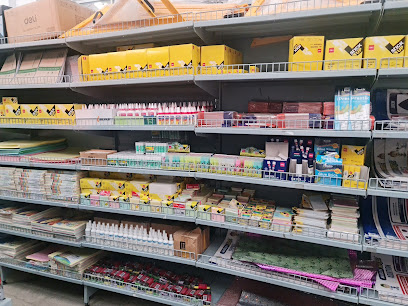
Value Trade Africa Grocery Stores
Explore local flavors and vibrant ingredients at Value Trade Africa Grocery Stores in Masvingo, the heart of Zimbabwean culinary culture.

Ali and Co
Discover vibrant textiles and unique fabrics at Ali and Co, your go-to fabric store in Masvingo, Zimbabwe.
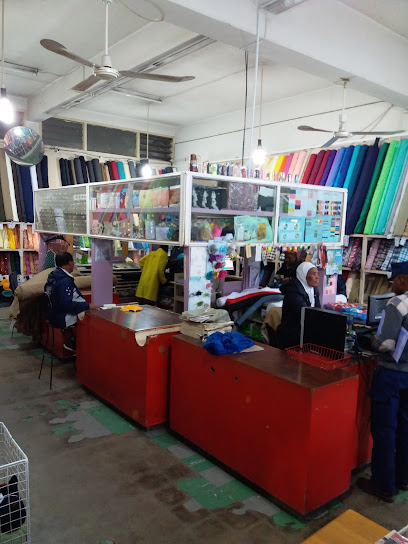
MultiDesigns Incorporated
Discover stylish and affordable furnishings at MultiDesigns Incorporated, the go-to furniture store in Masvingo offering a variety of designs to suit every taste.
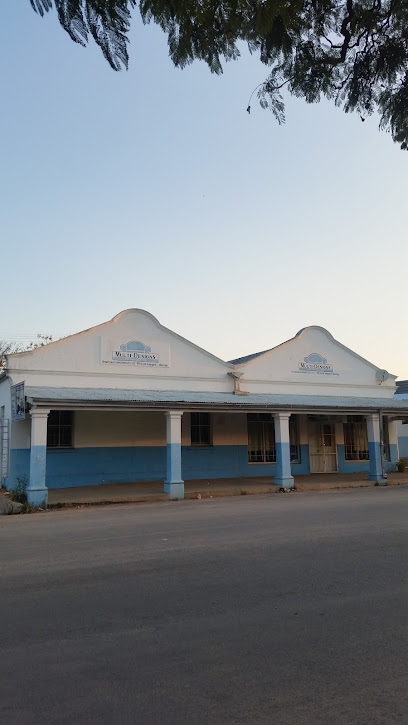
Enbee - Masvingo
Discover the best uniform shopping experience at Enbee in Masvingo, where quality meets variety for all your clothing needs.
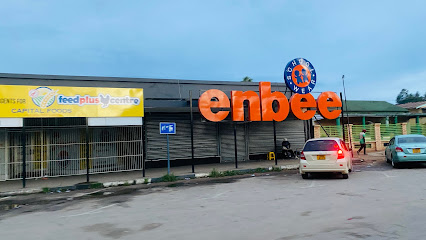
Sophisticated Style Spot
Explore contemporary men's fashion at Sophisticated Style Spot, your premier destination for stylish apparel in Masvingo.

TV Sales & Home
Explore stylish and affordable furniture at TV Sales & Home in Masvingo, where comfort meets elegance for your dream home.
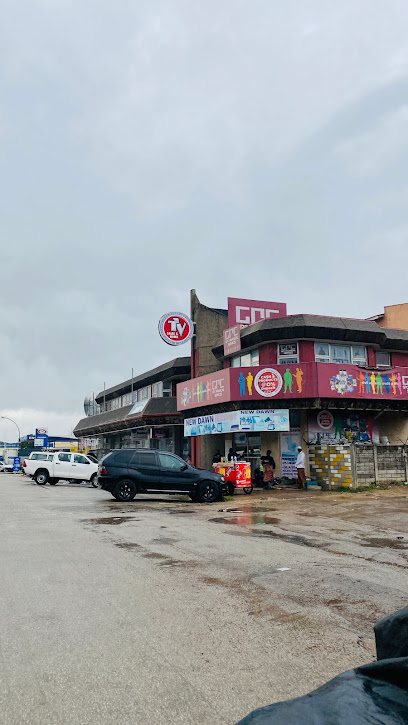
Jet - Masvingo
Explore the vibrant fashion scene at Jet - Masvingo, offering trendy clothing and unique styles at affordable prices.

Sheplife
Explore Sheplife in Masvingo for a delightful shopping experience filled with local crafts, unique souvenirs, and friendly service.
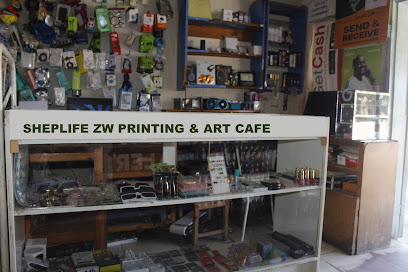
Essential bars & hidden hideouts
Reflections Restaurant
Discover a unique dining experience at Reflections Restaurant in Masvingo, blending delicious food, refreshing drinks, and local culture for every traveler.
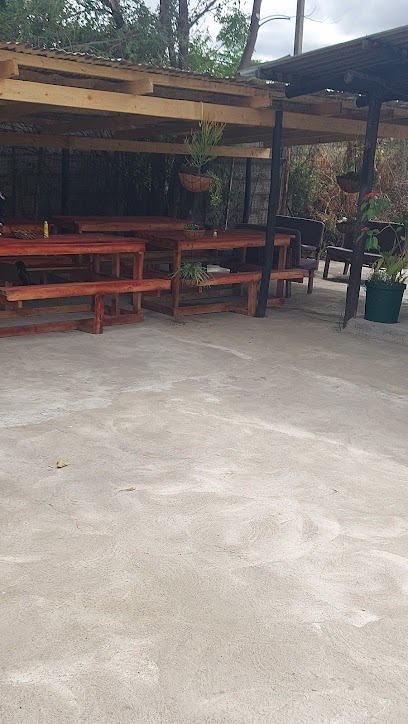
Manhede Beerhall
Experience the local culture at Manhede Beerhall, a vibrant spot in Masvingo perfect for socializing and enjoying inexpensive drinks.
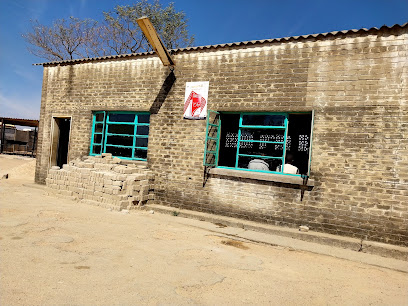
Ujiji Bar
Experience the vibrant flavors and friendly atmosphere of Ujiji Bar, the perfect spot for grilled delicacies in Masvingo.

Graceland
Experience the lively atmosphere and refreshing drinks at Graceland, a top bar in Masvingo, Zimbabwe, perfect for unwinding and socializing.
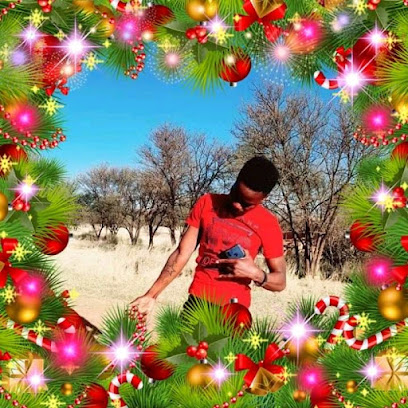
Landmark
Discover the vibrant nightlife of Masvingo at its premier bar, offering local brews and a lively atmosphere for an unforgettable experience.
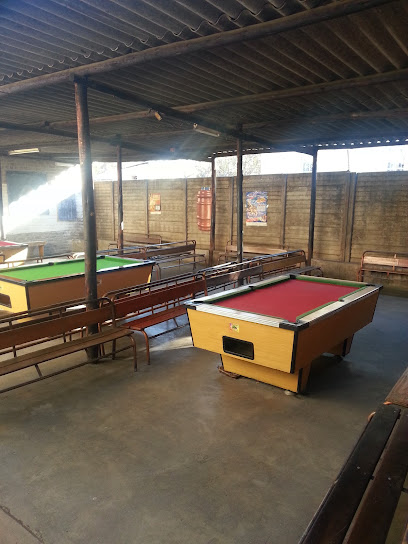
Mandaba Lounge
Discover the serene ambiance of Mandaba Lounge in Masvingo, where relaxation meets delightful drinks and light bites.

rujeko council bar (A.K.A marry me)
Discover the lively atmosphere and vibrant culture at Rujeko Council Bar, a must-visit spot in Masvingo for tourists seeking local experiences.

Rank's Kitchen
Explore the vibrant nightlife at Rank's Kitchen in Masvingo - a local bar full of culture, great drinks, and friendly faces.

Pagomo Pub & Grill
Explore the vibrant local flavors at Pagomo Pub & Grill in Masvingo, where delicious grilled dishes meet a lively atmosphere.
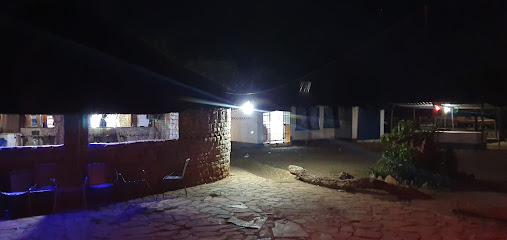
SAN SIRO SPORTS BAR AND GRILL MASVINGO
Discover the excitement of sports and delicious dining at San Siro Sports Bar and Grill in Masvingo, the perfect spot for foodies and sports fans.
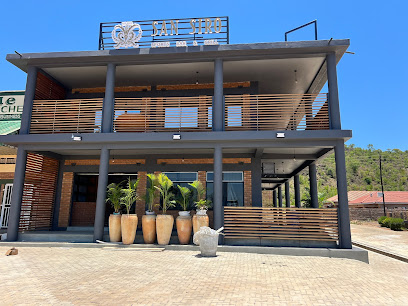
Bob's Tavern.
Discover the vibrant nightlife and local brews at Bob's Tavern, a lively bar in Masvingo perfect for relaxation and socializing.
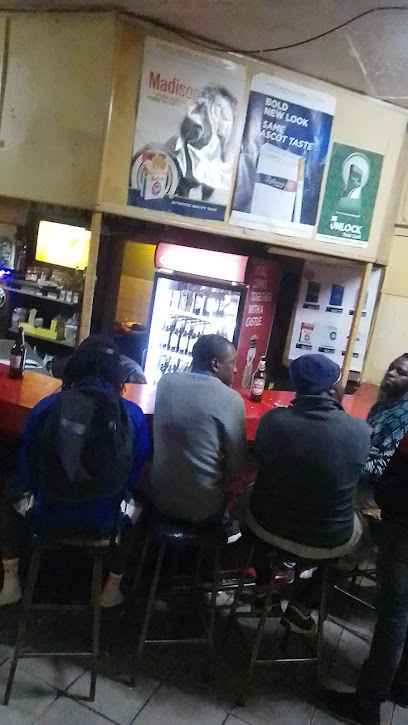
Liquids Bar
Discover the vibrant nightlife at Liquids Bar in Masvingo, a lively adult entertainment venue perfect for locals and tourists alike.

Grocery mart
Experience the vibrant local culture and flavors at the Beer Hall in Masvingo, where every sip tells a story.

Liquor Emporium
Experience the lively atmosphere and extensive selection of drinks at Liquor Emporium, Masvingo's favorite bar and beverage wholesaler.

Chevron Gomba Bar/Night club
Discover the cozy vibe and vibrant nightlife at Chevron Gomba Bar/Night Club, a top destination in Masvingo for relaxation and entertainment.
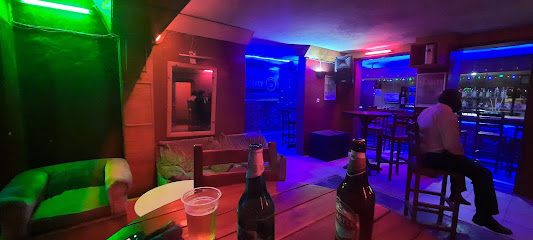
Local Phrases
-
- HelloMhoroi
[M-ho-roy] - GoodbyeKwaheri
[Kwa-he-ri] - YesEhe
[E-he] - NoAa
[A-a] - Please/You're welcomeNdatenda
[Nda-ten-da] - Thank youNdinotenda
[Ndi-no-ten-da] - Excuse me/SorrySamaita
[Sa-ma-i-ta] - How are you?Unjani?
[Un-ja-ni] - Fine. And you?Ndirikufara. Ndiva sei?
[N-di-ri-ku-fa-ra. N-di-va-sei] - Do you speak English?Waponesa chiIngerezi?
[Wa-po-ne-sa chi-In-ge-re-zi] - I don't understandHandina kugona kuziva
[Han-di-na ku-go-na ku-zi-va]
- HelloMhoroi
-
- I'd like to see the menu, pleaseNdoda kuona menu, musikana
[N-do-da ku-o-na me-nu, mu-si-ka-na] - I don't eat meatHandichinwi nyama
[Han-di-chin-wi n-ya-ma] - Cheers!Maidei!
[Mai-dei] - I would like to pay, pleaseNdoda kutora mari, musikana
[N-do-da ko-to-ra ma-ri, mu-si-ka-na]
- I'd like to see the menu, pleaseNdoda kuona menu, musikana
-
- Help!Tonamata!
[To-na-ma-ta] - Go away!Bvisa!
[Bvi-sa] - Call the Police!Tonhora zvigadzirwa!
[To-nho-ra zvi-gad-zi-rwa] - Call a doctor!Tonhora dokita!
[To-nho-ra do-ki-ta] - I'm lostNdirikusvika
[Ndi-ri-ku-svi-ka] - I'm illNdirikudhakwa
[Ndi-ri-ku-dha-kwa]
- Help!Tonamata!
-
- I'd like to buy...Ndoda kushandisa...
[N-do-da ku-shan-di-sa] - I'm just lookingNdinenge ndiri kunzwa
[Ndi-nen-ge n-di-ri ku-nzwa] - How much is it?Zvinhu zvinogona kuchinja mari here?
[Zvi-nhu zvi-no-go-na ku-chin-ja ma-ri he-re] - That's too expensiveIzvi zvinonaka kupi
[Iz-vi zvi-no-na-ka ku-pi] - Can you lower the price?Makabhowa mari?
[Ma-ka-bho-wa ma-ri]
- I'd like to buy...Ndoda kushandisa...
-
- What time is it?Saa ngapi?
[Sa-a nga-pi] - It's one o'clockSaa yechena
[Sa-a ye-che-na] - Half past (10)Pasi pe (10)
[Pa-si pe (10)] - MorningMaitiro
[Mai-ti-ro] - AfternoonMakuseni
[Ma-ku-se-ni] - EveningMakore
[Ma-ko-re] - YesterdayChakakosha
[Cha-ka-ko-sha] - TodayNhasi
[Nha-si] - TomorrowMangwana
[Man-gwa-na] - 1Motsi
[Mot-si] - 2Piri
[Pi-ri] - 3Tatu
[Ta-tu] - 4Ina
[I-na] - 5Shanu
[Sha-nu] - 6Tanhatu
[Tan-ha-tu] - 7Chinomwe
[Chi-no-mwe] - 8Chinotanhatu
[Chi-no-tan-ha-tu] - 9Chinotatu
[Chi-no-ta-tu] - 10Gumi
[Gu-mi]
- What time is it?Saa ngapi?
-
- Where's a/the...?Iko wani...?
[I-ko wa-ni] - What's the address?Address yekuti ndeyedini?
[Ad-dress ye-ku-ti n-de-ye-di-ni] - Can you show me (on the map)?Makataura kundiregera (pamap)
[Ma-ka-tau-ra kun-di-re-ge-ra (pa-map)] - When's the next (bus)?Kusvika rinhi chikomborero ichocho?
[Ku-svi-ka ri-nhi chi-kom-bo-re-ro i-cho-cho] - A ticket (to ....)Ticket (kuna ....)
[Ti-cket (ku-na)]
- Where's a/the...?Iko wani...?
History of Masvingo
-
The Great Zimbabwe Ruins are the most significant historical site in Masvingo and one of the most important archaeological sites in Africa. Dating back to the 11th century, these ruins were once the capital of the Kingdom of Zimbabwe. The complex is known for its impressive stone structures, including the iconic Great Enclosure and the Conical Tower. This site is a testament to the ingenuity and craftsmanship of the Shona people who built it.
-
The Kingdom of Mutapa, also known as the Mutapa Empire, succeeded the Kingdom of Zimbabwe around the 15th century. It extended its influence over the region, and Masvingo played a key role as a trade hub. The empire was known for trading gold and ivory with Swahili traders on the coast, and eventually with Portuguese settlers. This period marked a significant era of economic and cultural exchange in Masvingo.
-
In the late 19th century, the British colonial expansion reached Masvingo. In 1890, the British South Africa Company established Fort Victoria, named after Queen Victoria. The fort served as a military outpost and a base for colonial administration. This period saw significant changes in the region’s social and economic structures, with the establishment of European-style governance and the introduction of new agricultural practices.
-
The First Chimurenga, also known as the First War of Independence, occurred between 1896 and 1897. It was a significant uprising by the indigenous Shona and Ndebele people against British colonial rule. Masvingo, then known as Fort Victoria, was a focal point of the conflict. The resistance was ultimately subdued by the colonial forces, but it laid the groundwork for future struggles for independence.
-
After Zimbabwe gained independence in 1980, Fort Victoria was renamed Masvingo, aligning it with its indigenous heritage. The city has since developed into a vibrant urban center, balancing modernity with its rich historical legacy. Masvingo is now a cultural hub, attracting tourists and scholars alike who are eager to explore its historical sites, including the Great Zimbabwe Ruins and other significant landmarks.
Masvingo Essentials
-
Masvingo is located in the southeastern part of Zimbabwe. The nearest airport is Buffalo Range Airport, approximately 90 kilometers from Masvingo. Alternatively, you can fly into Harare International Airport, which is about 300 kilometers away. From either airport, you can hire a taxi or rent a car to reach Masvingo. There are also bus services that connect Masvingo to major cities like Harare and Bulawayo.
-
Within Masvingo, you can use local taxis or minibuses (kombis) for transportation. These are relatively inexpensive and can be found throughout the city. For a more comfortable and private option, car rentals are available. Walking is also a viable option for exploring the city center and nearby attractions, as many are within a short distance.
-
The official currency in Zimbabwe is the Zimbabwean Dollar (ZWL). However, the US Dollar is widely accepted, especially in tourist areas. Credit and debit cards are accepted in most hotels, restaurants, and larger shops, but it is advisable to carry some cash for smaller establishments and local markets. ATMs are available in Masvingo, but they may not always have cash available.
-
Masvingo is generally safe for tourists, but it is important to take standard precautions. Avoid walking alone at night, especially in poorly lit areas. Keep an eye on your belongings in crowded places to avoid pickpocketing. Areas like Mucheke and Rujeko have higher crime rates, so exercise caution if you visit these neighborhoods. Always use registered taxis and avoid accepting rides from strangers.
-
In case of emergency, dial 999 for police assistance or 112 for medical emergencies. Masvingo Provincial Hospital is the main medical facility in the city. It is advisable to have travel insurance that covers medical emergencies and evacuation. For minor health issues, pharmacies are available throughout the city where you can purchase over-the-counter medications.
-
Fashion: Do dress modestly, especially when visiting religious sites and rural areas. Avoid wearing revealing clothing. Religion: Do respect local customs and traditions. Always ask for permission before photographing people or religious sites. Public Transport: Do be respectful and offer your seat to elderly passengers. Don’t eat or drink on public transport. Greetings: Do greet people with a handshake. A warm smile and eye contact are also appreciated. Eating & Drinking: Do try local dishes and accept food offerings graciously. Don’t refuse hospitality, as it is considered impolite.
-
To experience Masvingo like a local, visit the local markets such as Chitima Market, where you can buy fresh produce and traditional goods. Engage with locals, who are often friendly and willing to share stories about the city's history and culture. Don’t miss visiting the Great Zimbabwe Ruins, a UNESCO World Heritage Site. For a unique experience, take a boat ride on Lake Mutirikwi and enjoy the scenic views.
Trending Landmark in Masvingo
-
Temshel Sportswear and Fragrances
-
Regency Flamboyant Hotel
-
Great Zimbabwe National Monument
-
Great Zimbabwe Hotel
-
Chevron Hotel
-
Lodge At Ancient City
-
Masvingo Downtown Lodge
-
Palmview Guest Lodge
-
Khami Ruins
-
Urban Lifestyles Guest House
-
Lake Mutirikwi
-
Heavenly Harmony Guest House
-
Flamboyant Hotel
-
Great Zimbabwe University
-
Mutirikwi Lake Shore Lodges
Nearby Cities to Masvingo
-
Things To Do in Gweru
-
Things To Do in Mutare
-
Things To Do in Harare
-
Things To Do in Nyanga
-
Things To Do in Chinhoyi
-
Things To Do in Francistown
-
Things To Do in Selebi-Phikwe
-
Things To Do in Kariba
-
Things To Do in Polokwane
-
Things To Do in Palapye
-
Things To Do in Hwange
-
Things To Do in Serowe
-
Things To Do in Vilanculos
-
Things To Do in Mahalapye
-
Things To Do in Victoria Falls







